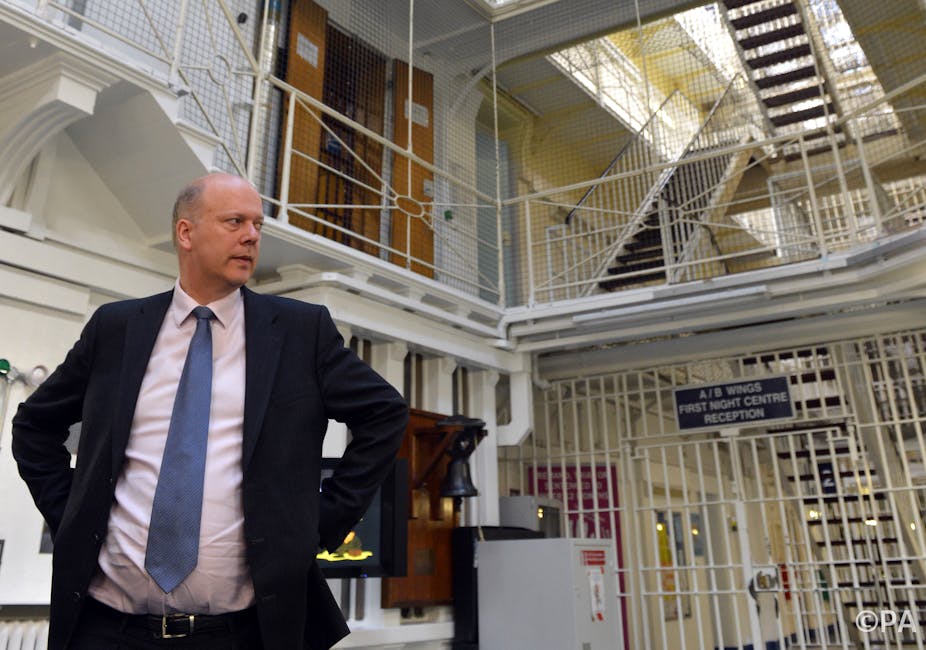It never gets any easier for justice minister Chris Grayling. Every month he seems to face fresh criticism over some new catastrophe in the justice system over which he presides. September is proving no different as he faces a judicial review into his criminal legal aid cuts, is forced to defend his policies on prison and probation in parliament and takes on a House of Commons committee concerned his cuts to legal aid are hurting families.
Grayling would insist that he does not worry about his detractors. They are typically dismissed as being left-wing – as though taking a differing political stance to his slavishly ideological conservatism automatically debars their opinions. His much-derided attempt to curb judicial review is a prime example. He accused lobby groups of turning this process – through which citizens can challenge government decisions – into a “promotional tool” and a means to delaying government projects of all kinds.
All the same, it is difficult to imagine how he could reflect upon the numerous disasters he has presided over in office and not feel a sense of embarrassment.
He has roused the ire of that most establishment of professional groups, the Bar association. Yet even the sight of bewigged barristers protesting against him in the streets with placards was not enough to shake him.
This week sees solicitors take Grayling to judicial review claiming the cuts to criminal legal aid were unlawful. While his own lawyers deal with this challenge, Grayling was this morning answering questions on two other areas of his justice portfolio.
Part of his grilling focused on probation, as the service Grayling is dogmatically trying to privatise recently revealed a remarkable level of distrust in him. A survey of 1,000 probation workers saw a staggering 98% claim to have no confidence in the justice secretary. The vast majority said they were considering quitting, dismayed at the manner in which the minister’s reforms were eroding standards and pushing them to compromise on the service they provided.
Dissatisfaction is inevitable when the transition process is so haphazard as to see staff selected to move to private firms based on a lottery – with names literally being picked out of a hat. When pressed, though, Grayling stated that his reforms are “going exactly to plan”.
Grayling was also probed on the “disaster” he is claimed to have created in the prison system. This followed a damning report the revealed ongoing chaos at Wormwood Scrubs prison, spending cuts that have led to prisoners being locked in their cells for longer and a draconian new regime that included the notorious prison book ban.
Grayling steadfastly denies that he has plunged prisons into chaos and said that prisons are now “less violent”. This despite the facts showing that serious attacks are higher than at any point in the last five years and incidents involving riot squads are up by 60% on 2012-13 figures. Add to that the 88 prisoners who killed themselves last year and the Howard League for Penal Reform’s claim that Grayling has sent the penal system into “meltdown” seems pretty plausible.
Family law in crisis
On top of this, the House of Commons Justice Committee has been investigating the impact of cuts to legal aid and all eyes are on Grayling again. The coalition made huge cuts to legal aid in April 2013 in legislation so divisive it was defeated 14 times in the House of Lords and, in the end, only passed because the vote was tied (meaning a government victory).
Personal injury, employment, immigration, debt and housing all suffered but support for private family law cases such as divorce and custody battles was decimated. All funding was taken away except to fund cases that involved domestic violence, forced marriage or child abduction. This meant that those involved in disputes caused by family break up would need to either seek the support of charities (though legal aid cuts are rapidly putting Law Centres out of business), use no-win, no-fee lawyers (despite Grayling also clamping down on these) or pay the eye-watering private practice rates of the legal profession.
In practice, the cuts have led to a massive increase in litigants-in-person – in family law, estranged parents representing themselves over financial issues, residence and access. This has created a two-tier system between those who have legal advice and those who do not. Justice has become a preserve of the rich.
Almost half of parents now go into court without legal advice. Instead of being concerned though, the government herald the decline in representation as a triumph, marvelling at how delays have been reduced in the courts and how mediation is quicker and cheaper than ever.
The coalition response flies in the face of the evidence. There has been a 38% decline in meditation over the past year. That’s because without legal advice, couples don’t know that they could and should use the service. Instead, they end up facing each other in court, where they often end up representing themselves and angry at each other. The number of children caught up in legal battles between divorcing parents is running at twice the rate before the cuts.
Cases are taking longer to resolve because litigants-in-person do not understand legal issues and need judges to work through cases with them in the courtroom. Delays are no good for the children involved in these cases, which in itself, contravenes the rule that their welfare must always come first. The reality is that a government which claims to put family first is failing innocent children, who have become the unfortunate by-standers in their parents’ disputes.

